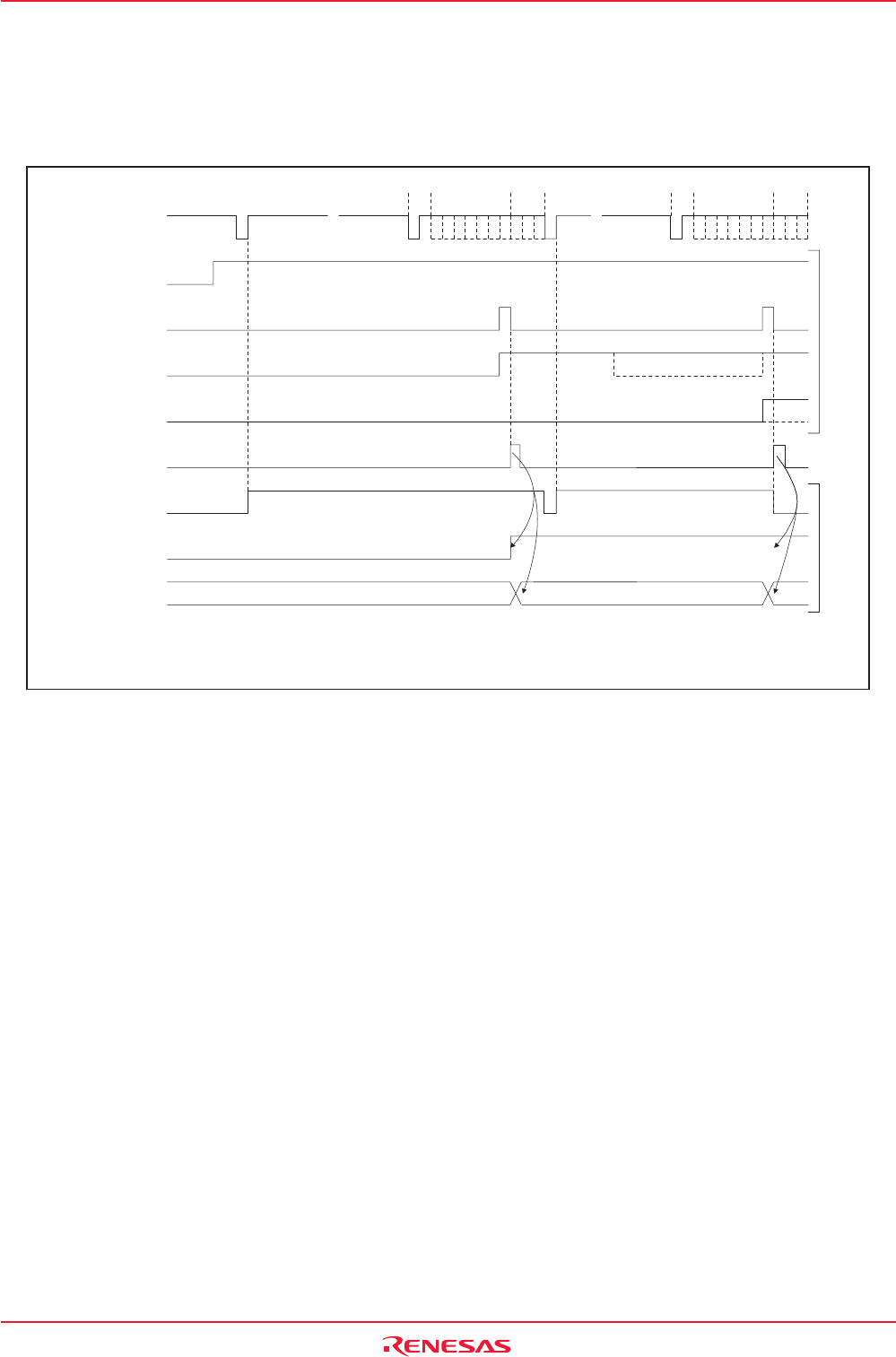
Rev.1.10 Jul 01, 2005 page 223 of 318
REJ09B0124-0110
M16C/6N Group (M16C/6NK, M16C/6NM) 18. CAN Module
Under development
This document is under development and its contents are subject to change.
18.15.1 Reception
Figure 18.20 shows the behavior of the module when receiving two consecutive CAN messages, that fit
into the slot of the shown CiMCTLj register (i = 0, 1, j = 0 to 15) and leads to losing/overwriting of the first
message.
CANbus
RecReq bit
InvalData bit
CANi Successful
Reception Interrupt
RecState bit
RecSucc bit
MBOX bit
NewData bit
SOF ACK EOF EOFIFS
IFS
SOF
Receive slot No.
MsgLost bit
CiMCTLj register
CiSTR register
(1)
(2)
(2)
(3)
(4)
(5)
(5)
(5)
i = 0, 1
j = 0 to 15
ACK
Figure 18.20 Timing of Receive Data Frame Sequence
(1) On monitoring a SOF on the CAN bus the RecState bit in the CiSTR register becomes “1” (CAN
module is receiver) immediately, given the module has no transmission pending.
(2) After successful reception of the message, the NewData bit in the CiMCTLj register of the receiving
slot becomes “1” (stored new data in slot). The InvalData bit in the CiMCTLj register becomes “1”
(message is being updated) at the same time and the InvalData bit becomes “0” (message is valid)
again after the complete message was transferred to the slot.
(3) When the interrupt enable bit in the CiICR register of the receiving slot = 1 (interrupt enabled), the
CANi successful reception interrupt request is generated and the MBOX bit in the CiSTR register is
changed. It shows the slot number where the message was stored and the RecSucc bit in the CiSTR
register is active.
(4) Read the message out of the slot after setting the New Data bit to “0” (the content of the slot is read or
still under processing by the CPU) by a program.
(5) If the NewData bit is set to “0” by a program or the next CAN message is received successfully before
the receive request for the slot is canceled, the MsgLost bit in the CiMCTLj register is set to “1”
(message has been overwritten). The new received message is transferred to the slot. Generating of
an interrupt request and change of the CiSTR register are same as in 3).


















